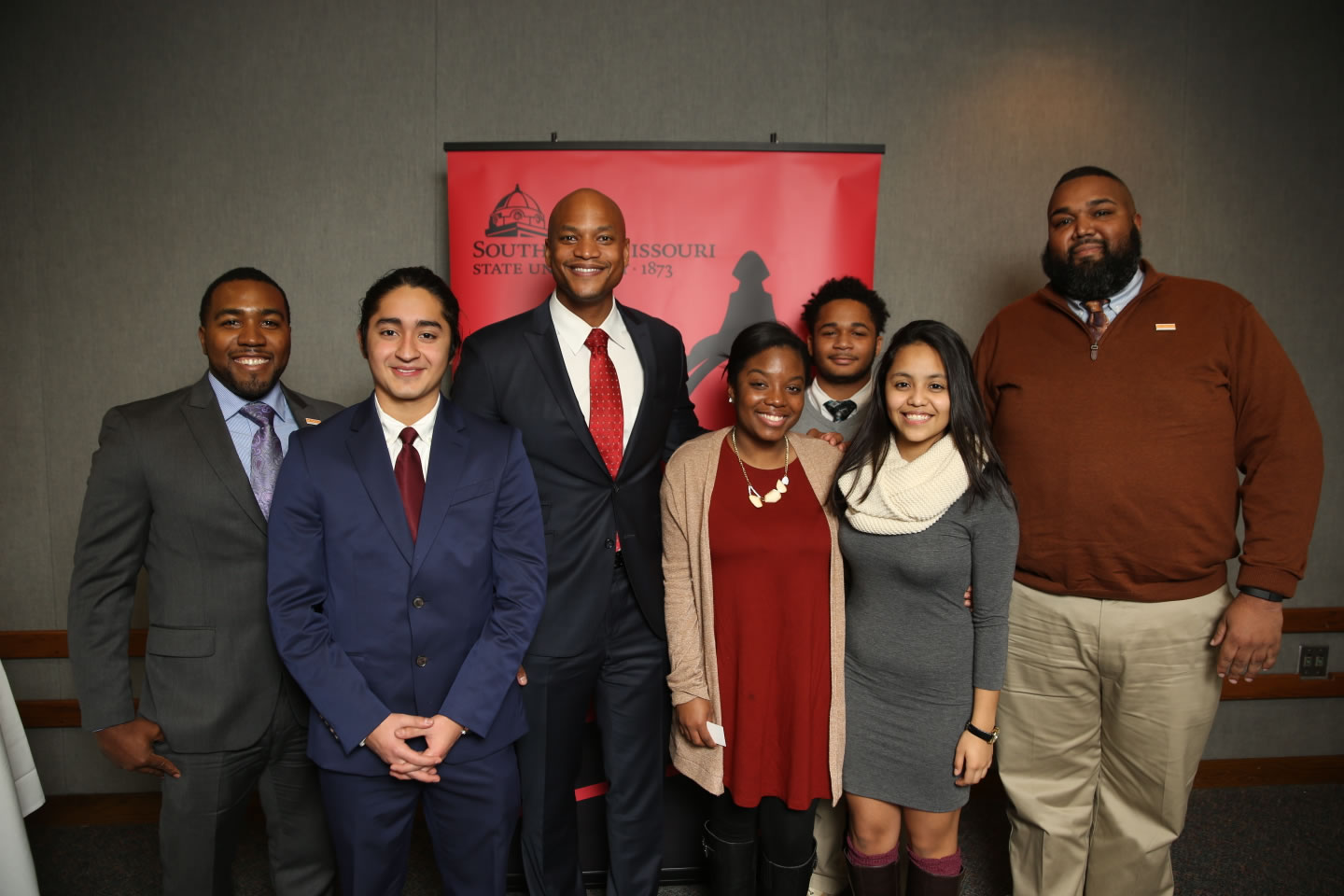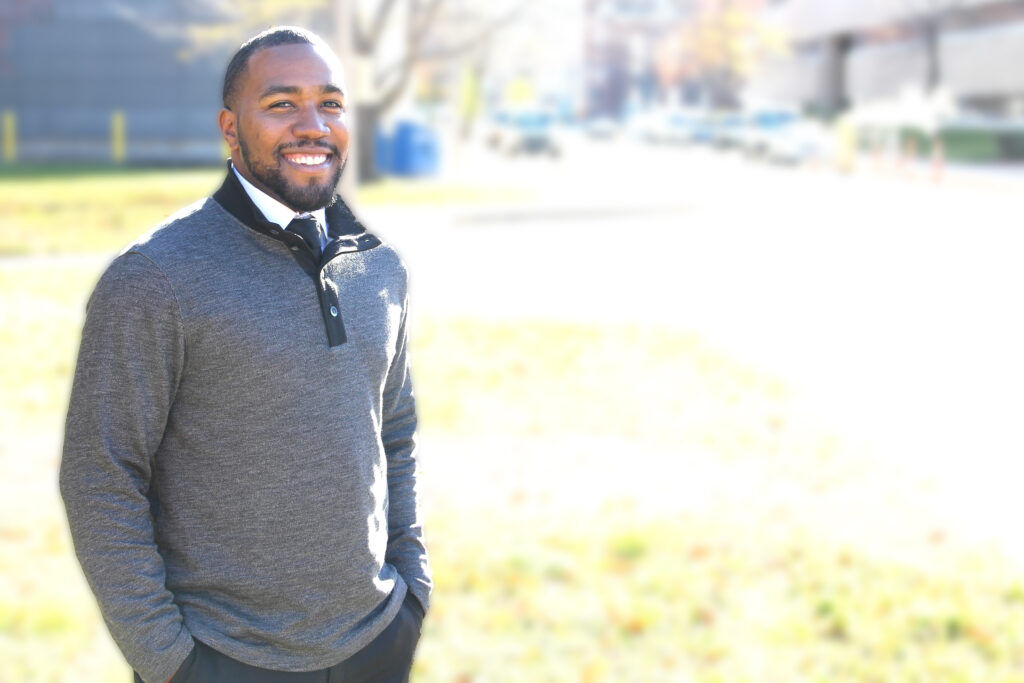“The most dangerous gap in society is the expectation gap. Potential in this country is universal, opportunity is not.” -Wes Moore
The following perspective is written by Bryan Capers, Director of Wyman’s Teen Leadership Program (TLP). Below, read Bryan’s thoughts after hosting a field trip to Southeast Missouri State University with TLP teens to hear from Wes Moore, youth advocate and New York Times best-selling author, in celebration of Dr. Martin Luther King Jr. Day.
—
Race summits held in high schools and social justice initiatives in the districts our students attend were the focus of our recent road trip to Southeast Missouri State University.
During a dinner featuring renowned author and philanthropist Wes Moore, I was amazed to hear how in-tune our teens were to their responsibility to change their communities.
They know their future success is not just about attending college, getting good grades or participating in extracurricular activities. They’re focused on changing the expectations that exist within their communities.
As Moore spoke about his experiences growing up in the northeast, he pointed out that there is no single solution to solving societal issues… In fact, there shouldn’t be one single solution.
His belief is that society is complex, and in order to navigate through its complexities, we must challenge ourselves to think outside of our own identities, biases and cultural norms.
He reinforced that we are not a broken society comprised of broken people. Instead, we are afraid of engaging in expression in its plainest form — dialogue.
For that reason, it’s imperative that our teens be engaged in the conversation. Our teens are not products of their community, they are products of expectation.
It is our job to continue to expose them to new opportunities, to raise their expectations and be effective contributors to their communities and society at-large.
Janet, a TLP teen, said that listening to Moore opened her eyes. She said, “It is about the bigger picture. We have to be unafraid and take a stand in order to heal our society.”
Personally, Moore took me back to my own experiences growing up in the Bronx.
I remember cutting corners and changing my routes to avoid becoming a target. I remember the fear of walking at night, regardless of what block I was on.
I remember the first time I was jumped while walking to my grandmother’s house. I recall the nerve-wracking train rides, surrounded by groups of boisterous young people, hoping that I wasn’t next on the list.
I remember the day my brother and cousin missed their train and ended up with concussions because they refused to give their belongings to gang-bangers.
Drug dealers taunted us to follow their lead — “To be something or somebody.” In a community of low expectations, everybody wanted to be somebody, to matter, and that was the way to do it.
I was especially moved when Moore spoke about how we have limited Dr. Martin Luther King Jr’s legacy to one great speech, rather than his charge to society: which is to embrace the ideas we strongly oppose.
Contrary to popular belief, racism did not die with Dr. King. The reality of his legacy should remind us that we should get comfortable with being uncomfortable.

Much like Dr. King, Moore motivated us, inspired us, and charged us to find that thing that breaks our hearts and to DO something about it.
We can begin to make change happen by preparing ourselves to be comfortable with engaging in uncomfortable – and challenging – dialogue and situations. We have the power and abilities to influence our society.


